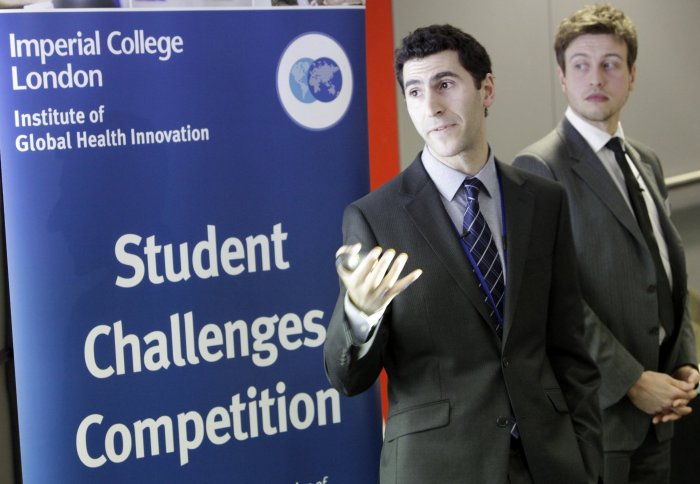Do you have an innovative idea for global health?
by Jo Seed

Our annual Student Challenges Competition could help you win funding to turn that idea into reality!
Our vision at the Institute of Global Health Innovation (IGHI) is to support the identification, development and widespread distribution of healthcare innovation and in doing so to sustainably reduce global health inequalities across the globe.
Our Student Challenges Competition offers students a key opportunity to showcase their research idea and to win prize money of up to £5,000 to develop this further. Runners-up prizes will also be awarded.
The competition is open to all undergraduate and postgraduate university students based in the UK and can be on any aspect of global health innovation.
For example:
- Aiding patients with physical disabilities in the developing world
- Improving sanitation and hygiene;
- Tackling chronic diseases;
- Finding new diagnostics for infectious diseases in remote areas;
- Enhancing and reshaping global health policy and processes.
We are looking for technical, clinical and business innovations which must have the potential for wide scale global health impact and also allow for economic implementation and feasibility. Short listed candidates will present to a panel of global health experts at our annual Dragon’s Den style event, where they will be given the chance to win funding to create a prototype or visit a potential research site abroad to implement their project idea.
If you think you have the winning idea, visit our website and find out how to apply. If anything is unclear, do not hesitate to email us at ighi@imperial.ac.uk.
The deadline for applications is Friday 20th January 2017.
To find out how to enter and to obtain further info, visit our website.
Watch the video about last year's competition to find out more
We look forward to receiving your entry.
Article text (excluding photos or graphics) © Imperial College London.
Photos and graphics subject to third party copyright used with permission or © Imperial College London.
Reporter
Jo Seed
Institute of Global Health Innovation
